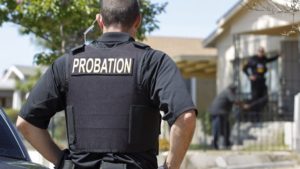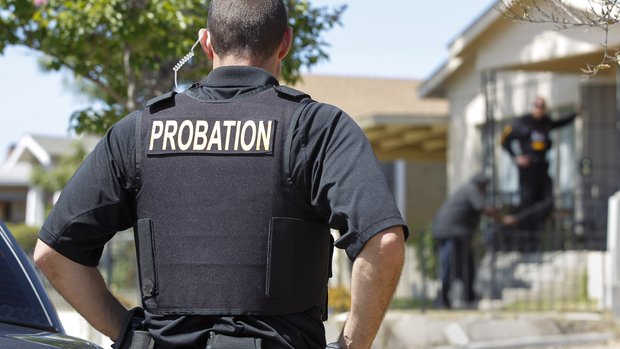Colorado Probation Revocations – Why Working With Your Probation Officer Makes Sense
By H. Michael Steinberg – Colorado Probation Violation Criminal Defense Lawyer

_________________________________
Colorado Probation Revocations – Why Working With Your Probation Officer Makes Sense
Colorado Probation Revocations – Why Working With Your Probation Officer Makes Sense – Colorado probation officers have a great deal of authority. Part of that authority is the decision to arrest you or give you a paper summons to appear in court. Your relationship with your probation officer may make the difference between the trauma of an unexpected arrest and receiving a summons to appear in court.
Success On Colorado Probation Means Avoiding Jail
When a Colorado probation officer believes a probationer has violated probation – that probation officer has several options:
1. Treat the violation as a “one off” or “outlier” and use it as a teaching moment – issuing only a warning.
2. Issue a summons requiring the probationer to appear in court on the probation violation.
3. Arrest the probationer without a court order based on probable cause.
4. File a complaint for the revocation of probation and request an arrest warrant.
It bears repeating – probation is a privilege, not a right.
Colorado Judges And Probation Officers Do NOT Want To Arrest You – Give Them A Reason Not To Arrest You
Stakeholders in the Colorado criminal justice system know that incarceration inhibits success at probation. The truth is PO’s and Judges really do NOT want to have you arrested and violate your probation.
One of the primary tenets that applies to a successful completion of probation is this – frequent and long periods of incarceration will probably cause a person not to succeed on probation but to fail on probation.
Judges know that imposing jail for a violation of probation usually inhibits long term success for the probationer especially in cases where the probationer loses his or her job as a result of incarceration.
There is also a well known and consistent link in the research between unemployment because of a failure at probation and the commission of new crimes. Judge’s know that even briefly incarcerating offenders facing a probation revocation may lead to job loss, family hardships, and result in other de-stabilization events in the lives of the probationer’s lives.
It Makes Great Sense To Forge A Close Trusting Relationship With Your Probation Officer
I have made this point on this website often – so please read this important point carefully:
if you respect your probation officer and work hard to be successful at probation – even when you fail or regress – your probation officer will most of the time give you some slack and the benefit of the doubt.
What follows is the law that grants your probation officer the discretion – the authority – to either arrest you or to give you a summons.
§ 16-11-205. Arrest of Probationer – Revocation
(1) A probation officer may arrest any probationer when:
(a) He has a warrant commanding that the probationer be arrested; or
(b) He has probable cause to believe that a warrant for the probationer’s arrest has been issued in this state or another state for any criminal offense or for violation of the conditions of probation; or
(c) Any offense under the laws of this state has been or is being committed by the probationer in his presence; or
(d) He has probable cause to believe that a crime has been committed and the probationer has committed such crime; or
(e) He has probable cause to believe that the conditions of probation have been violated and probable cause to believe that the probationer is leaving or about to leave the state, or that the probationer will fail or refuse to appear before the court to answer charges of violation of the conditions of probation, or that the arrest of the probationer is necessary to prevent physical harm to the probationer or another person or the commission of a crime; or
(f) The probationer, who is on probation as a result of a conviction of any felony except a class 1 felony, has been tested for the illegal or unauthorized use of a controlled substance and the result of such test is positive.
(2) If a probation officer has reason to believe that the conditions of probation have been violated by any probationer, he may issue a summons requiring the probationer to appear before the court at a specified time and place to answer charges of violation of the conditions of probation. The summons, unless accompanied by a copy of a complaint, shall contain a brief statement of the violation and the date and place thereof. Failure of the probationer to appear before the court as required by the summons shall be deemed a violation of the conditions of probation.
(3) If, rather than issuing a summons, a probation officer makes an arrest, without warrant, of a probationer, the probationer shall be taken without unnecessary delay before the nearest available judge of a court of record. Any probationer so arrested shall have all of the rights afforded by the provisions of this code to persons incarcerated before trial of criminal charges and may be admitted to bail pending probation revocation hearing.
(4) Within seven days after the arrest of any probationer as provided in this section, or within a reasonable time after the issuance of a summons under this section, the probation officer shall complete his or her investigation and either:
(a) File a complaint in the court having jurisdiction of the violation of probation; or
(b) Order the release of the probationer, if imprisoned, and notify the probationer that he is relieved of obligation to appear before the court. In such event, the probation officer shall give written notification to the court of his action.
(5) A complaint alleging the violation of a condition of probation may be filed either by the probation officer pursuant to subsection (4) of this section or by the district attorney. Such complaint shall contain the name of the probationer, shall identify the violation charged and the condition of probation alleged to have been violated, including the date and approximate location thereof, and shall be signed by the probation officer or the district attorney. A copy thereof shall be given to the probationer a reasonable length of time before he appears before the court.
(6) A warrant for the arrest of any probationer for violation of the conditions of probation may be issued by any judge of a court of record upon the report of a probation officer or upon the verified complaint of any person, establishing to the satisfaction of the judge probable cause to believe that a condition of probation has been violated and that the arrest of the probationer is reasonably necessary. The warrant may be executed by any probation officer or by a peace officer authorized to execute warrants in the county in which the probationer is found.
(7) A person or entity that provides supervision pursuant to section 18-1.3-202(2), C.R.S., may issue a summons and file a complaint with the court for a defendant under his or her supervision in accordance with the provisions of this section.
Colorado Probation Revocations – Why Working With Your Probation Officer Makes Sense
If you found any of the information I have provided on this web page article helpful please click my Plus+1 or the Share buttons for Twitter and Facebook below so that others may also find it.
The reader is admonished that Colorado criminal law, like criminal law in every state and at the Federal level, changes constantly. The article appearing above was accurate at the time it was drafted but it cannot account for changes occurring after it was uploaded.
If, after reading this article, you have questions about your case and would like to consider retaining our law firm, we invite you to contact us at the Steinberg Colorado Criminal Defense Law Firm – 303-627-7777.
Never stop fighting – never stop believing in yourself and your right to due process of law. You will not be alone in court, H. Michael will be at your side every step of the way – advocating for justice and the best possible result in your case. H. Michael Steinberg is passionate about criminal defense. His extensive knowledge and experience of Colorado Criminal Law gives him the edge you need to properly handle your case
ABOUT THE AUTHOR: H. Michael Steinberg – Email The Author at:
 A Denver Colorado Criminal Defense Lawyer – or call his office at 303-627-7777 during business hours – or call his cell if you cannot wait and need his immediate assistance – please call 720-220-2277.
A Denver Colorado Criminal Defense Lawyer – or call his office at 303-627-7777 during business hours – or call his cell if you cannot wait and need his immediate assistance – please call 720-220-2277.
“A good criminal defense lawyer is someone who devotes themselves to their client’s case from beginning to end, always realizing that this case is the most important thing in that client’s life.”
You should be careful to make a responsible choice in selecting a Colorado Criminal Defense Lawyer. We encourage you to “vet” our firm. Over the last 40 plus years – by focusing ONLY on Colorado criminal law – H. Michael has had the necessary time to commit to the task of constantly updating himself on nearly every area of criminal law, to include Colorado criminal law and procedure and trial and courtroom practice. H. Michael works hard to get his clients the best possible results in and out of the courtroom. He has written, and continues to write, extensively on Colorado criminal law and he hopes this article helps you in some small way – Colorado Probation Revocations – Why Working With Your Probation Officer Makes Sense.
